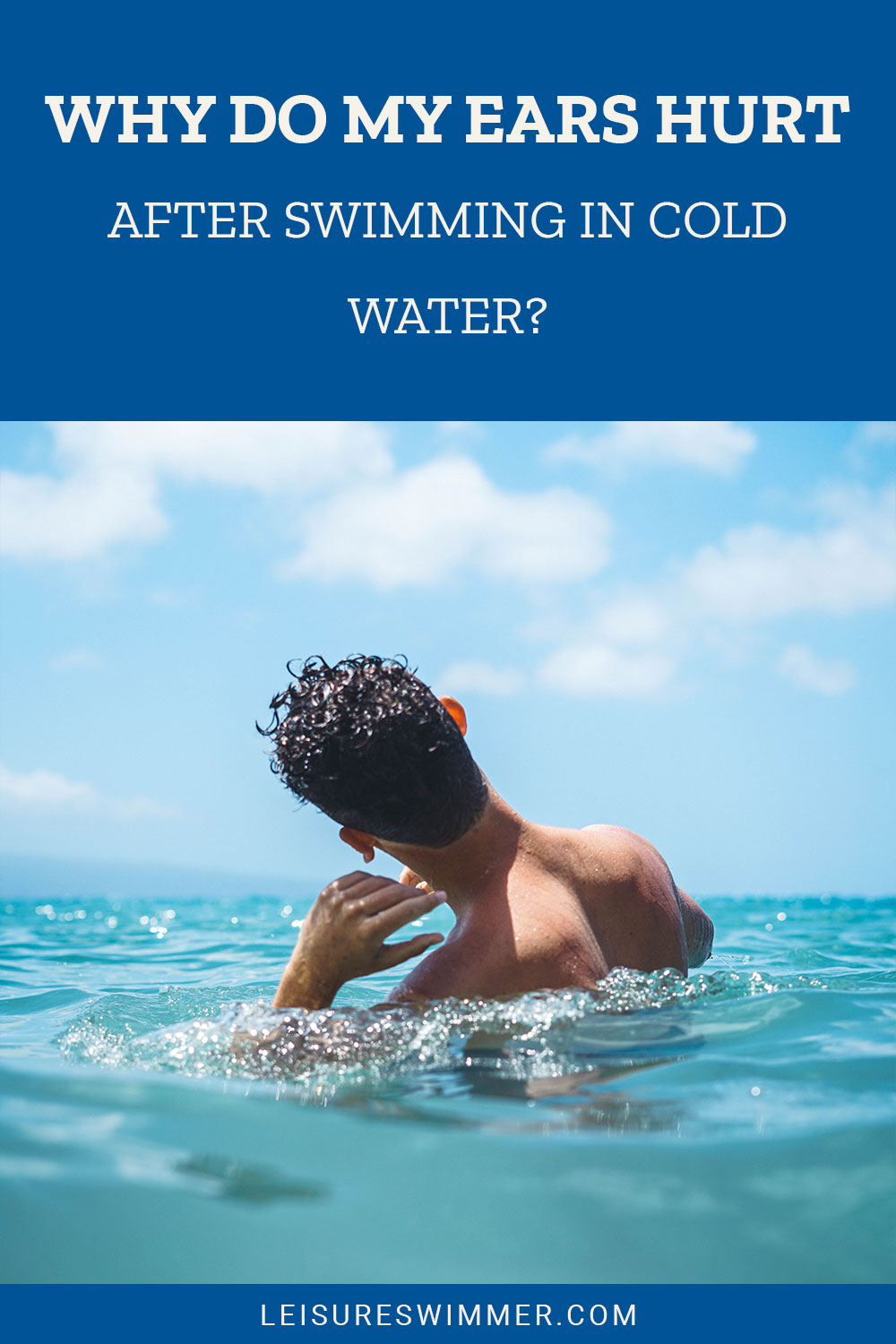Why Do My Ears Hurt After Swimming In Cold Water?
We may earn commissions for purchases made through links on our site. Learn more on our about us page.
Even with the proper swimming form and technique, it is still possible to experience pain from other sources like repetitive strain injuries or the water’s effect on the human body.
Pain or aching in the ear after swimming in cold water could be due to several things like bacteria growing in the ear canal or on the skin of the ear, as well as simple sensitivity to extreme temperatures.
Continue reading to learn more about why your ears might hurt after swimming in cold water, what you can do to prevent it in the future, and more.

Is it Normal?
Depending on the type of ear pain you are experiencing, the pain can be a fairly common issue many people deal with. Deep ear pain or earache can result from water becoming lodged in the ear canal.
This water can contain many bacteria that enjoy the conditions of the warm ear canal, multiplying and causing inflammation (and therefore pain or discomfort) in the ear.
Similar situations can occur if you swim with an open wound on the ear’s skin. Again, bacteria infect the wound and cause additional pain during an extended healing process.
Some people also experience greater sensitivity when it comes to their ears and ambient temperatures, similar to how people experience pain in their teeth when drinking cold water.

How Can You Prevent it?
If you can identify water getting into the ear as the main culprit for causing pain and aching, there are several ways to prevent future infections:
- Ensure that the water you swim in has the right levels of chlorine or other chemicals to reduce the number of bacteria in the water
- Dry your ears as much as possible after swimming
- Don’t try to use things like cotton-tipped swabs to dry out the ear, as they can scratch the skin and introduce a higher risk of infections.
There are also solutions for while you swim, which may involve wearing a tightly-fitted swim cap over the ears, or custom-made earplugs to prevent water from getting into the ear in the first place.
How Do You Stop the Pain?
While an ear infection from swimming might go away on its own after a couple of hours to days, you may need to seek medical attention.
You may be prescribed antibiotic ear drops that you will have to take at regular intervals for 7 to 10 days. Do not stop treatment simply because you feel better. Always finish a prescribed course of drugs.
Over-the-counter pain relief medication like acetaminophen or ibuprofen can help you control the pain until the infection is over.
If you believe your ear is sensitive to cold water temperatures, a warm cloth over the ear after swimming may relieve you of pain faster than simply waiting.
How Long Does it Take for the Pain to Go Away?
If your ear pain is because of sensitivity to temperatures, the pain should recede and go away completely on its own. This should only take as long as it takes to return your ears to their normal resting temperature.
An ear infection will take longer, depending on how severe it is as well as when you started treatment. Typically, a course of antibiotics for an ear infection will take just over a week.
In the case your ear pain does not go away even after an antibiotic regimen, you should seek further medical assistance.
Should You Avoid Swimming in Cold Water?
You don’t necessarily need to avoid swimming in cold water just because your ears hurt afterward. However, you may want to consider avoiding cold water if:
- You know that your ears have a sensitivity to the cold water
- You don’t want to experience pain after every cold water swimming session
- You are susceptible to ear infections from any water source and don’t want to damage your hearing
Before completely giving up on swimming in cold water, you should look into solutions like the swim cap or custom-fitted earplugs to keep your ears warm and free of water. This should remedy most sources of pain so you can enjoy swimming anywhere you like.
Final Thoughts on Why Do Your Ears Hurt After Swimming In Cold Water
Although ear pain is one of the most common complaints after a swim, you should not be experiencing it every time. Any ear pain you experience is likely to result from an ear infection or sensitivity to the water’s cold temperature.
Drying out your ears and warming them up quickly but safely after a swim can help prevent both of these issues and use swimming accessories designed to keep water out of the ear canal.


